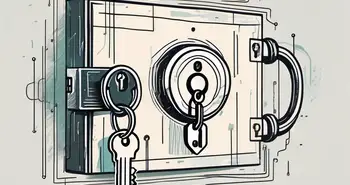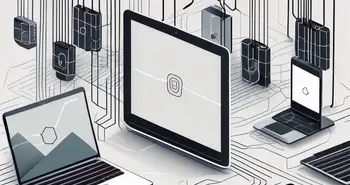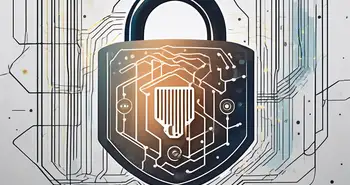The Importance of Formal Verification of Smart Contracts

Smart contracts play a vital role in blockchain technology, enabling the automation of transactions without the need for intermediaries. However, as smart contracts become increasingly popular, it is essential to recognize the importance of formal verification in ensuring their security and reliability.
Understanding Smart Contracts
Before delving into the significance of formal verification, it is important to have a solid understanding of smart contracts. Simply put, smart contracts are self-executing agreements with the terms of the agreement directly written into the code. These contracts operate on the blockchain, ensuring transparency and immutability.
Smart contracts have gained significant attention due to their potential to streamline processes and enhance security in various industries. They are essentially lines of code that execute predefined actions when specific conditions are met, without the need for intermediaries.
Definition and Function of Smart Contracts
Smart contracts are digital contracts that facilitate, verify, and enforce the negotiation and performance of an agreement, all without the need for intermediaries. They are executed automatically once predefined conditions are met.
One of the key advantages of smart contracts is their self-executing nature, which reduces the risk of fraud and manipulation. By operating on a decentralized network like the blockchain, smart contracts ensure that transactions are secure and tamper-proof.
The Role of Smart Contracts in Blockchain Technology
The revolutionary aspect of smart contracts lies in their ability to eliminate the need for intermediaries, such as lawyers or brokers, in various fields. Whether it's executing financial transactions or creating decentralized applications, smart contracts have the potential to revolutionize numerous industries.
Furthermore, smart contracts can enhance efficiency by automating complex processes that traditionally require manual intervention. This not only saves time but also reduces costs associated with intermediaries and paperwork.
The Concept of Formal Verification
Formal verification is a rigorous process used to verify whether a system, in this case, smart contracts, adheres to its intended specifications and behaves as desired. It involves mathematically proving that the code will behave as expected in all scenarios.
Formal verification is a critical step in ensuring the security and reliability of smart contracts. By subjecting the code to rigorous mathematical scrutiny, developers can have confidence that the smart contract will perform as intended without any unexpected behaviors or vulnerabilities.
The Process of Formal Verification
In the context of smart contracts, formal verification entails using mathematical techniques and logic to analyze the code and prove its correctness. It involves modeling the contract and systematically checking its properties to ensure that it functions as intended.
One common approach to formal verification is to use formal specification languages such as Solidity, which is specifically designed for writing smart contracts. These languages allow developers to define the expected behavior of the contract in a precise and unambiguous way, making it easier to verify its correctness.
Why Formal Verification is Necessary
Formal verification is crucial because it can detect vulnerabilities and bugs in smart contracts that could lead to costly or even catastrophic consequences. By using formal verification techniques, potential risks and errors can be identified and addressed before the contract is deployed on the blockchain.
Furthermore, formal verification can help improve the overall quality of smart contracts by enforcing best practices and ensuring that the code is robust and reliable. This can ultimately enhance the trustworthiness of smart contracts and increase their adoption in various industries.
Risks Associated with Unverified Smart Contracts
Without proper formal verification, smart contracts are susceptible to various risks that can compromise the security and integrity of the blockchain system.
When smart contracts are left unverified, they are akin to leaving a door unlocked in the digital realm, inviting potential threats and vulnerabilities. These vulnerabilities can be exploited by hackers and bad actors, leading to a cascade of detrimental effects on the entire blockchain network.
Potential Security Threats
Unverified smart contracts can become a breeding ground for security vulnerabilities. Malicious actors can exploit these vulnerabilities to manipulate the contract's logic, leading to financial loss or unauthorized access to sensitive information.
One of the most concerning security threats posed by unverified smart contracts is the possibility of a “reentrancy attack.” In this type of attack, a malicious party can repeatedly withdraw funds from a contract before the initial transaction is completed, potentially draining the contract of its resources.
Financial and Operational Risks
Aside from security threats, unverified smart contracts can also have significant financial and operational risks. If a contract contains errors or unintended behavior, it can result in financial losses for users or disrupt the intended operation of decentralized applications, negatively impacting user experience.
Moreover, the lack of verification in smart contracts can lead to unforeseen consequences that extend beyond financial losses. Operational disruptions caused by unverified contracts can erode trust in the blockchain ecosystem, hindering its widespread adoption and potential for innovation.
Benefits of Formal Verification for Smart Contracts
Formal verification provides numerous advantages when applied to smart contracts, enhancing their security, reliability, and overall functionality.
One of the key benefits of formal verification for smart contracts is the ability to enhance their scalability. By rigorously analyzing the code and ensuring its correctness, developers can build contracts that can handle a larger volume of transactions without compromising on security or performance. This scalability is crucial for blockchain networks that aim to support a growing user base and increasing transaction throughput.
Enhancing Security and Trust
By formally verifying smart contracts, vulnerabilities and potential loopholes can be identified and eliminated before deployment. This significantly reduces the risk of exploitation and instills confidence in users, creating an environment of trust within the blockchain ecosystem.
Moreover, formal verification plays a vital role in ensuring compliance with regulatory requirements. By verifying that smart contracts adhere to legal standards and industry regulations, organizations can mitigate the risk of non-compliance and potential legal issues. This not only enhances the security of the contracts but also fosters trust among stakeholders, including regulators and users.
Improving Efficiency and Accuracy
Formal verification streamlines the development process of smart contracts by detecting errors and inconsistencies early on. By ensuring that the code adheres to its intended specifications, it minimizes the likelihood of unforeseen issues arising during execution, resulting in more efficient and accurate contract performance.
Additionally, formal verification contributes to the overall transparency of smart contracts. Through rigorous testing and verification processes, developers can provide clear and comprehensive documentation of the contract's behavior and functionality. This transparency not only enhances the contract's reliability but also enables users to better understand the underlying logic and mechanisms, fostering greater confidence in the contract's operations.
Challenges in Formal Verification of Smart Contracts
While formal verification offers substantial benefits, it is not without its challenges and limitations. These factors can pose obstacles to the widespread adoption of formal verification techniques.
Technical Difficulties and Limitations
Formal verification can be technically demanding and time-consuming, requiring expertise in mathematical modeling and formal methods. The complexity of smart contract systems and the lack of standardized methodologies add to the challenges faced by developers attempting to verify their contracts.
Cost and Time Implications
The formal verification process can be resource-intensive, involving substantial time, effort, and expertise. This can pose financial barriers and hinder the adoption of formal verification, particularly for smaller projects or developers with limited resources.
Case Study
Let me share with you a story that further emphasizes the significance of formal verification. A few years ago, a prominent blockchain project launched a smart contract without undergoing formal verification. The contract was responsible for managing the distribution of tokens to early investors. Unfortunately, a coding error went unnoticed, resulting in a vulnerability that allowed a malicious actor to exploit the contract and steal a significant amount of tokens.
The incident caused panic among the project's community and led to a loss of trust in the platform. The team had to halt all operations, conduct an extensive security audit, and reimburse affected users. The financial and reputational damage was substantial, and it took months for the project to regain its credibility.
This unfortunate event serves as a reminder that even seemingly minor mistakes in smart contract code can have severe consequences. Formal verification, with its rigorous testing and verification processes, could have prevented such a vulnerability from being exploited. By investing in formal verification, developers can significantly reduce the risk of such incidents and ensure the integrity and security of their smart contracts.
By addressing these questions, we provide a comprehensive understanding of the importance of formal verification of smart contracts and encourage responsible development practices within the blockchain community.
Understanding the critical role of formal verification in smart contracts underscores the need for a secure and reliable trading platform. Morpher is precisely that—a revolutionary trading platform that ensures a safe, innovative, and fee-free trading experience. With Morpher, you benefit from zero fees, infinite liquidity, fractional investing, and up to 10x leverage across a variety of asset classes. Embrace the future of trading with confidence by joining a community that values security and transparency as much as you do. Sign Up and Get Your Free Sign Up Bonus today and be part of the transformation in investing with Morpher.

Disclaimer: All investments involve risk, and the past performance of a security, industry, sector, market, financial product, trading strategy, or individual’s trading does not guarantee future results or returns. Investors are fully responsible for any investment decisions they make. Such decisions should be based solely on an evaluation of their financial circumstances, investment objectives, risk tolerance, and liquidity needs. This post does not constitute investment advice.

Painless trading for everyone
Hundreds of markets all in one place - Apple, Bitcoin, Gold, Watches, NFTs, Sneakers and so much more.

Painless trading for everyone
Hundreds of markets all in one place - Apple, Bitcoin, Gold, Watches, NFTs, Sneakers and so much more.









